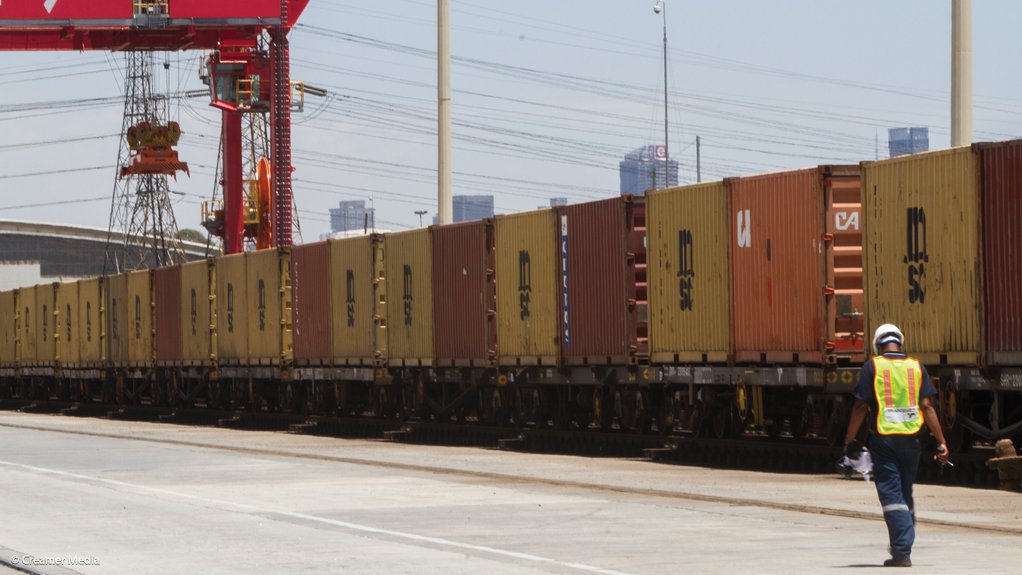Stated-owned freight logistics utility Transnet has issued a request for proposals (RFP) inviting private logistics companies to design, build, operate, maintain and eventually hand over an inland container terminal, earmarked for Tambo-Springs, in eastern Gauteng.
The 20-year concession would be Transnet’s biggest private sector participation project to date and would be located in Ekurhuleni along the N3 motorway and near to the Johannesburg-to-Durban rail corridor.
The deadline for submissions is September 30, 2016, and Transnet expects to award the contract in the last quarter of the company’s financial year, which ends on March 31, 2017.
The terminal is expected to be in operation by 2019 and will have an initial capacity of 144 000 twenty-foot equivalent units (TEUs) a year, with an option to increase its capacity to 560 000 TEUs.
Transnet’s recently upgraded City Deep inland port, in Gauteng, has a yearly container handling capacity of 400 000 TEUs.
The utility operates four other terminals in Gauteng and the new terminal has been designed to complement the existing container-handling capacity in the province.
In fact, the Tambo-Springs terminal is one of three mega terminals being planned for South Africa’s smallest, yet wealthiest province over the coming 20 years.
While no capital estimate has been provided, South Africa’s National Infrastructure Plan indicates that the project (designated as a Strategic Integrated Project 2 development) could involve an investment of around R6.5-billion.
The project would include the development of terminal infrastructure, including an arrival and departure yard for cargo trains, and the installation of terminal equipment. It will include a stacking area, warehousing space, a distribution centre and inland Reefer facilities.
Transnet Freight Rail would still be responsible for the operation of the arrival-and-departure yard, but the operator would be responsible for loading and offloading of containers and marketing of the facility.
The winning bidder, Transnet said, would need to have demonstrated its technical expertise elsewhere, and carry a minimum of level 4 broad-based black economic-empowerment status, with a commitment to reach level 2 by the third year of operation.
The project is expected to create 50 000 jobs, and has stringent requirements for supplier development and skills transfer.
Edited by: Creamer Media Reporter
EMAIL THIS ARTICLE SAVE THIS ARTICLE
To subscribe email subscriptions@creamermedia.co.za or click here
To advertise email advertising@creamermedia.co.za or click here













